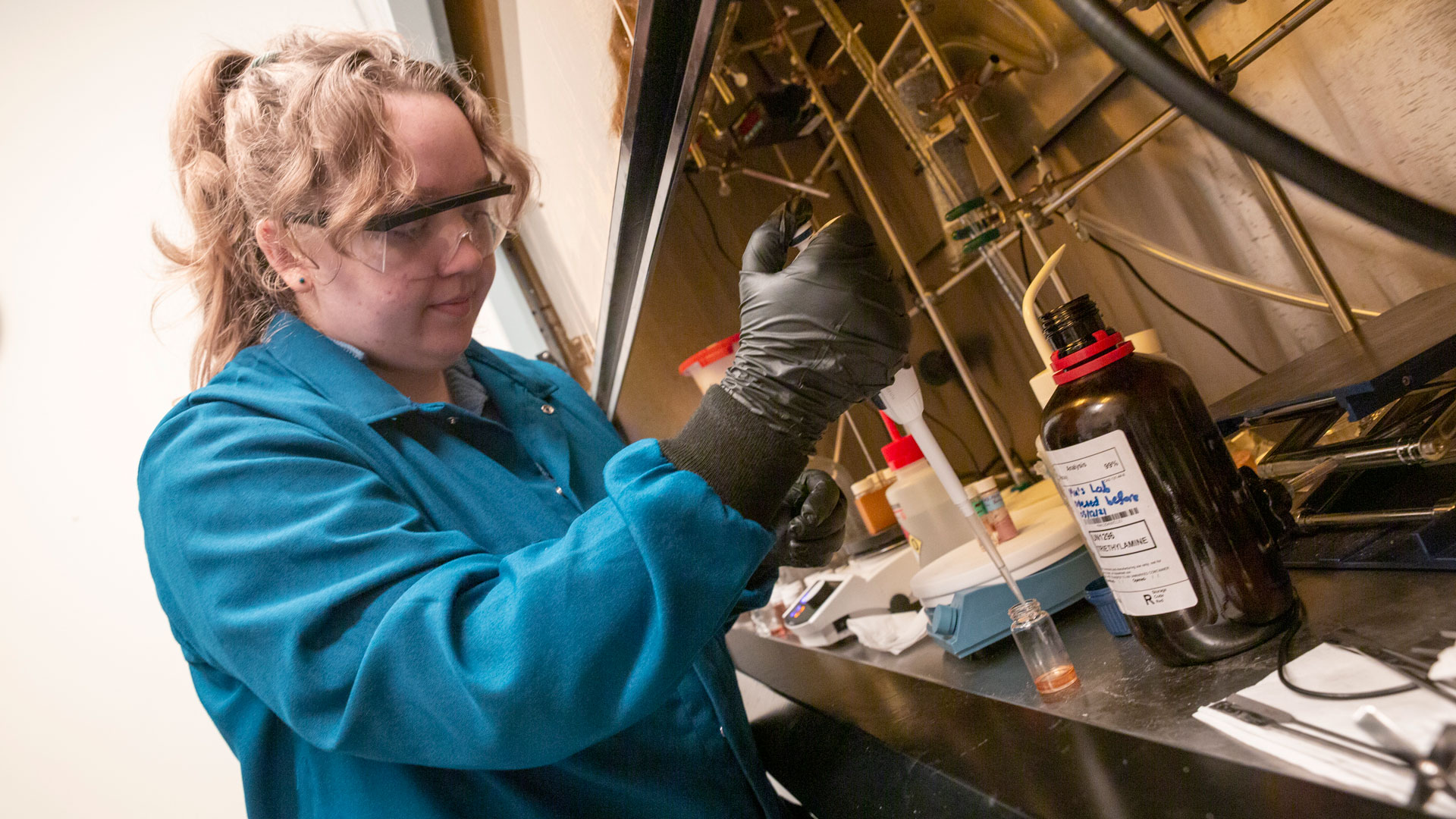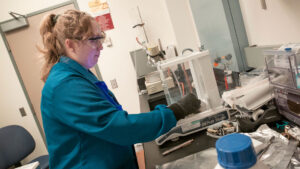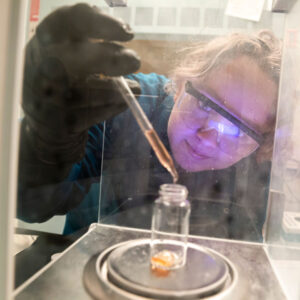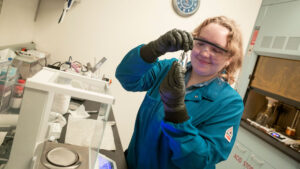Micayla Corker
Chemical engineering
Hometown: Mesa, Arizona, United States
Graduation date: Spring 2024
FURI | Fall 2022
Recyclable Thiol-ene Polymers via Thiol-Disulfide Exchange Reaction
The basis of this project is a reprocessable photopolymer made up of a UV-induced thiol-ene network. The introduction of a tetra functional thiol into the structure, pentaerythritol tetrakis (PETMP), improves the mechanical and thermal properties of this network while also maintaining the disulfide backbone, which allows for reprocessing. These properties are evaluated using tensile testing, degradation trials, and rheometry.
Mentor: Kailong Jin
Featured project | Fall 2022

Micayla Corker is a chemical engineering junior in the FURI program working with Kailong Jin, an assistant professor of chemical engineering. She wants to reduce the proliferation of single-use plastics by modifying a recyclable polymer — a material like plastic or proteins made of very large molecules — to improve its durability for use in 3D printing and other applications where single-use plastics are the norm. Corker’s work was also sponsored by W. L. Gore & Associates, which provides extra funding for outstanding FURI and MORE projects for one semester.
What made you want to get involved in FURI?
Before starting my research, I wasn’t sure which field I wanted to pursue. Getting involved in FURI was a very easy way to get practical experience in a topic that interested me. I also wanted to develop better relationships with faculty and graduate students.
Why did you choose the project you’re working on?
I chose this project, which focuses on sustainable polymers for improved circularity, because I’ve always had a passion for sustainability and was interested in learning more about polymers. This project was a very hands-on way for me to combine both of those principles.
How will your engineering research project impact the world?
Today, plastics have a wide variety of uses such as fabrics in fashion, IV tubes in medicine and steering wheels in the automotive industry. However, most plastics that are produced are single-use and discarded, making up the majority of human waste per year. My research project will help combat this issue by making a recyclable polymer with the thermal and mechanical properties necessary to replace single-use plastics in various applications.
How do you see this experience helping with your career goals?
My involvement in FURI and other extracurriculars will help me establish myself as someone who is excited to learn, is a dedicated student and a hard worker. I am currently looking for internships and having experience to talk about during interviews is very helpful. Also, because I am interested in pursuing a career in materials manufacturing, my experience with polymers shows that I have a unique perspective to offer.
What is the best advice you’ve gotten from your faculty mentor, Assistant Professor Kailong Jin?
Helping other people is good, but always make sure your input is documented so that you receive the credit you deserve.
Why should other students get involved in this program?
I believe FURI is a great way for students who are interested in a particular subject to gain experience not only in that subject, but also working with others in a more professional setting than school. It’s hard to go from school straight to a corporate job, so I think this is a great middle ground.


